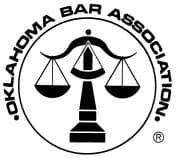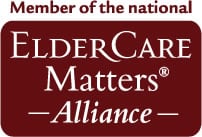
06 Nov Understanding the Corporate Transparency Act: Reporting Requirements for Corporations, LLCs, and Limited Partnerships
If you own a Corporation, Limited Liability Company (LLC), or Limited Partnership, there’s a crucial upcoming requirement that you should know about.
The Corporate Transparency Act (CTA), passed by Congress in 2021, mandates a new level of transparency in business ownership. This legislation introduces a beneficial ownership information (BOI) reporting requirement, designed to prevent misuse of anonymous entities for financial crimes like money laundering and tax evasion.
By requiring companies to disclose ownership information, the CTA aims to limit opportunities for bad actors to exploit hidden ownership structures or shell companies.
As the CTA goes into effect, here’s what you need to know to comply and avoid penalties:
What is the Corporate Transparency Act?
The CTA is a federal law requiring many types of business entities, including corporations, LLCs, and limited partnerships, to disclose information about their beneficial owners. Beneficial owners are the individuals who ultimately own or control a company, even if they aren’t listed as legal owners on formal documents.
The CTA’s purpose is to increase transparency by making it more difficult for criminals to conceal illicit activities through layers of anonymous companies.
Why Is This Reporting Requirement Important?
In the past, it was possible to set up shell companies or anonymous entities that could hide the identities of those who actually controlled them. Unfortunately, this anonymity has often been exploited by individuals seeking to evade taxes, launder money, or engage in other financial crimes.
The CTA, managed by the Financial Crimes Enforcement Network (FinCEN), now requires companies to provide beneficial ownership information, which the U.S. government will securely maintain to prevent misuse.
This new layer of transparency is expected to create a more honest business environment and protect the public from fraud and corruption.
What Information Needs to Be Reported?
To comply with the CTA, entities must provide specific information about their beneficial owners, which typically includes:
- Full name of each beneficial owner
- Date of birth
- Residential or business address
- A unique identifying number (such as a passport or driver’s license number)
Reporting this information through FinCEN’s BOI filing system ensures that the government has a record of the individuals in control of the entity.
Important Deadline: January 1, 2025
To comply with this new regulation, all corporations, LLCs, and limited partnerships subject to the CTA must file their beneficial ownership information with FinCEN by January 1, 2025.
Failing to file on time could lead to penalties, so it’s important to act promptly. You can report the required information through FinCEN’s online filing portal here: FinCENBOI Filing.
Take Action Today!
The Corporate Transparency Act represents a significant shift in how business ownership information is disclosed in the United States. For business owners, it’s essential to understand and meet the CTA’s requirements to avoid legal repercussions and ensure compliance with federal law.
By filing your beneficial ownership information through the FinCEN portal before the January 1, 2025, deadline, you’ll contribute to a more transparent business environment and protect your business from potential fines or penalties.
If you have concerns or uncertainties about this requirement, please consult with the team at Gary Crews. We are ready to guide you through the compliance process and ensure your filings meet FinCEN’s standards.
Additional Resources and FAQs
If you have questions about the specifics of the CTA, such as how it applies to your business or what constitutes a beneficial owner, FinCEN has published a helpful FAQ section. You can access it here: BOI FAQs. This page provides detailed answers on exemptions, reporting requirements, and other aspects of the law.







